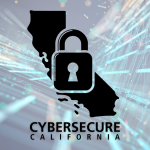Getting Started with Cybersecurity: FAQ
1. What is cybersecurity, and why is it important for my business?
Cybersecurity involves protecting your computer systems, networks, and data from theft, damage, or unauthorized access. It is crucial for businesses to maintain customer trust, protect financial and intellectual property, and comply with regulatory requirements.
2. I run a small business. Is cybersecurity still important for me?
Absolutely. Small businesses are often targets because attackers assume they have weaker security measures. Regardless of size, any business that uses digital technology and handles customer data needs to consider cybersecurity.
3. What are the first steps I should take to improve my business’s cybersecurity?
Assess your current situation: Understand what data you need to protect and your potential vulnerabilities.
Create a cybersecurity policy: Develop guidelines for how your business handles and protects data.
Educate your team: Ensure that all employees are aware of and understand the cybersecurity risks and best practices.
Implement basic defenses: Use antivirus software, firewalls, and regularly update all systems.
4. What common cyber threats should I be aware of?
Some of the most common threats include phishing (fraudulent emails asking for sensitive information), ransomware (malware that locks you out of your files or systems until a ransom is paid), and data breaches (unauthorized access to your data).
5. How often should I review or update my cybersecurity measures?
Cybersecurity is an ongoing process. Regularly review and update your measures, especially after any significant changes in your business or the threat landscape. A good practice is to conduct a comprehensive review at least annually.
6. What are some simple, everyday practices that can enhance my business’s cybersecurity?
- Use strong, unique passwords for all accounts and change them regularly.
- Keep software and systems updated to protect against the latest threats.
- Back up data regularly in a secure location.
- Be cautious with emails, especially those requesting sensitive information or urging quick action.
- Limit access to sensitive information to only those who need it.
7. Where can I find more resources or help for setting up my business’s cybersecurity?
Many resources are available, including government websites like CISA (Cybersecurity & Infrastructure Security Agency), non-profit organizations specializing in cybersecurity, and professional services that can assess your needs and implement solutions. Cybersecure California also offers a range of resources and guidance tailored to California businesses.
8. Can cybersecurity insurance help protect my business?
Cybersecurity insurance can mitigate the financial impact of cyber incidents. It typically covers costs related to recovery, legal fees, and sometimes ransom payments. It’s not a substitute for good cybersecurity practices but can be a valuable part of your overall risk management strategy.
Looking to Dive Deeper into Cybersecurity?
If you’ve found these FAQs helpful and are ready to take the next step in protecting your business, check out our comprehensive “Year of Cybersecurity: A Month-by-Month Roadmap for California Business Owners.” This series provides a structured guide to enhancing your cybersecurity posture over the course of a year, with actionable advice and resources tailored for each stage of your journey.
🔗 Explore the Year in Cybersecurity
Don’t navigate the complex world of cybersecurity alone. Join Cybersecure California and become part of a community committed to creating a safer digital landscape for businesses across the state.

